About the Author
Pat Proctor is a US Army field artillery lieutenant colonel with over seventeen years of active service. In 2007, he served in Iraq as a member of General Petraeus and Ambassador Crockers Joint Strategic Assessment Team, mapping the future for postsurge Iraq. Pat returned for a second tour, in Northern Iraq, as a battalion operations officer in the 1st Infantry Division. He holds two masters degrees, a masters of military arts and sciences for strategy from the US Army Command and General Staff College and a masters of military arts and sciences for theater operations from the School of Advanced Military Studies. He is currently the chief of plans for the 1st Infantry Division and a doctoral student in history at Kansas State University. Pats recent publications include Message versus Perception during the Americanization of the Vietnam War (The Historian, Spring 2011); Fighting to Understand: A Practical Example of Design at the Battalion Level (Military Review, MarchApril 2011); and The Mythical Shia Crescent (Parameters, Spring 2008, and Iran International Times, 23 May 2008).

Published by Government Institutes
An imprint of The Scarecrow Press, Inc.
A wholly owned subsidiary of The Rowman & Littlefield Publishing Group, Inc.
4501 Forbes Boulevard, Suite 200, Lanham, Maryland 20706
http://www.govinstpress.com
Estover Road, Plymouth PL6 7PY, United Kingdom
Copyright 2012 by Pat Proctor
All rights reserved. No part of this book may be reproduced in any form or by any electronic or mechanical means, including information storage and retrieval systems, without written permission from the publisher, except by a reviewer who may quote passages in a review.
The reader should not rely on this publication to address specific questions that apply to a particular set of facts. The author and the publisher make no representation or warranty, express or implied, as to the completeness, correctness, or utility of the information in this publication. In addition, the author and the publisher assume no liability of any kind whatsoever resulting from the use of or reliance upon the contents of this book.
British Library Cataloguing in Publication Information Available
Library of Congress Cataloging-in-Publication Data
Proctor, Pat, 1971
Task Force Patriot and the end of combat operations in Iraq / Pat Proctor.
p. cm.
Includes index.
ISBN 978-1-60590-777-2 (cloth : alk. paper) ISBN 978-1-60590-778-9 (e-book)
1. Proctor, Pat, 1971 2. United States. Army. Task Force Patriot. 3. Iraq War,
2003Personal narratives, American. I. Title.
DS79.766.P76A3 2012
956.7044342dc23
2011036285
 The paper used in this publication meets the minimum requirements of American National Standard for Information SciencesPermanence of Paper for Printed Library Materials, ANSI/NISO Z39.48-1992.
The paper used in this publication meets the minimum requirements of American National Standard for Information SciencesPermanence of Paper for Printed Library Materials, ANSI/NISO Z39.48-1992.
Printed in the United States of America
To my best friend, Aree
Acknowledgments
F irst, I would like to thank all of the men and women who have stood shoulder to shoulder with me through two tours in Iraq, and especially all of the Proud Americans of Task Force Patriot. Special thanks go to Lt. Col. Robert Bubba Cain for teaching me everything I will ever know about commanding a battalion and Maj. Tim Blackwell and Maj. Matt Payne for teaching me everything I will ever know about running one. Thank you, also, to Mike Samander; with your wise council over evening cigars and your keen negotiating skills, you, as much as any soldier in the task force, contributed to our success. I apologize to all of the civilians and soldiers in Task Force Patriot that I was not able to mention in this book. Please know that I will forever be in awe of the sacrifices you have made for your country.
Second, I would like to thank my agent, Grace Freedson, for believing in me and my work way past the point where it made logical sense. Your passion was a huge inspiration to me in completing this book.
I would also like to thank Mr. James Hill and all of the hardworking folks at the Department of the Armys Office of the Chief of Public Affairs.
Thank you to my lovely wife, Aree, and my children, Amy and Jonathan, for their heroic patience with all of the rigors of being an Army family. Thank you, as well, to my mom and dad, Patricia and Ronald, for all of their help holding down the fort each day I was gone.
And, above all, I thank God, through whom all things are made possible.
The views expressed in this book are those of the author and do not reflect the official policy or position of the Department of the Army, Department of Defense, or the U.S. government.
Introduction
T he US Army that went to war in Iraq in March 2003 was the US Army that the Vietnam War built. That is not to say that the Army was the same Army that fought in Vietnam. In fact, it was anything but. Rather, the US Army that crossed the border from Kuwait into Iraq on 21 March 2003 was profoundly changed by the US Armys experience in Vietnamor rather the American militarys interpretation of that experience. While some of these changes were for the better, others created unintended consequences when the US Army was faced with yet another grueling insurgency, this time in Iraq.
In the early 1980s, when the US defense establishment finally began to grapple with the implications of the Vietnam War that had ended a decade before, they sought a clear guide for policy makers in deciding when and where to use military force (and, more importantly, when and where not to use military force). Their goal was to prevent the US military from becoming mired in similar wars in the future. President Ronald Reagans secretary of defense, Caspar Weinberger, was the first to enunciate a clear policy. It was later amended by Chairman of the Joint Chiefs of Staff, Gen. Colin Powell. The policy recommendations, which have since become known as the Powell Doctrine, advocated the use of overwhelming force in conflicts with clear objectives and definable exit strategies. The American security establishments answer to the Vietnam War, then, was to not fight another Vietnam War.
The logical conclusion of the Powell Doctrine was Air-Land Battle. This military doctrine reached its zenith during the 1990 Gulf Waran aerial campaign of massive, precision firepower followed by a brutally effective lightning invasion that swept aside the worlds fourth-largest military and restored Kuwaiti sovereignty. But, most importantly, within a matter of months, the US military returned to the United States to fanfare and parades.
It was not until thirteen years later, when the US military found itself embroiled in a guerilla war against a variety of enemy factions in a hostile land full of hostile people, that the US Army realized its folly; it had deluded itself into believing that it could simply choose not to fight wars it was not good at fighting. Yet, in the finest American tradition, the officers of the US military rolled up their sleeves and started trying to figure out the problem.
The first tool they turned to was actually an offshoot of Air-Land Battle: Effects-Based Operations. The doctrine advocated analyzing the environment as a system of systems and trying to identify key nodes in that system that, if acted upon, would produce the desired effect. Unfortunately, the theory was a victim of its origins; it was designed by airpower theorists to select targets for bombing, where the effects of actions could be accurately predicted. Such was not the case when your nodes were people rather than power plants and your action was building schools instead of dropping bombs.



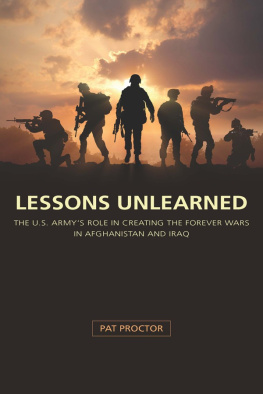
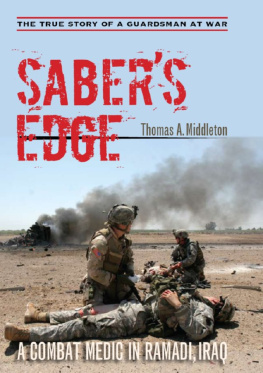
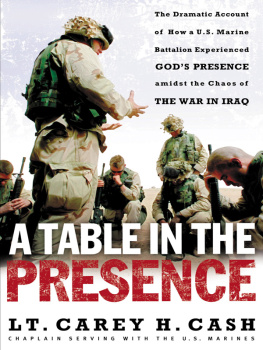
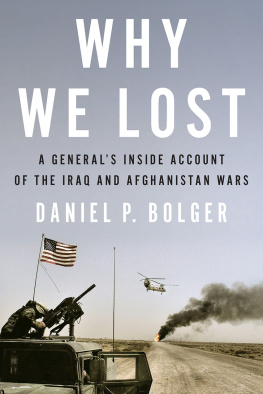
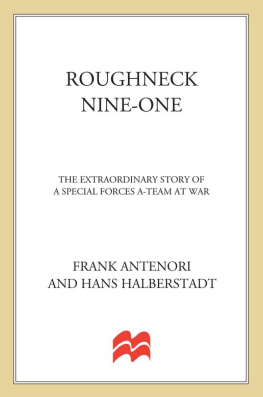


 The paper used in this publication meets the minimum requirements of American National Standard for Information SciencesPermanence of Paper for Printed Library Materials, ANSI/NISO Z39.48-1992.
The paper used in this publication meets the minimum requirements of American National Standard for Information SciencesPermanence of Paper for Printed Library Materials, ANSI/NISO Z39.48-1992.